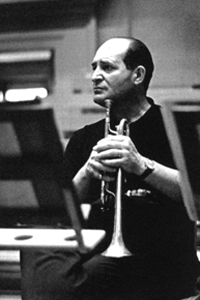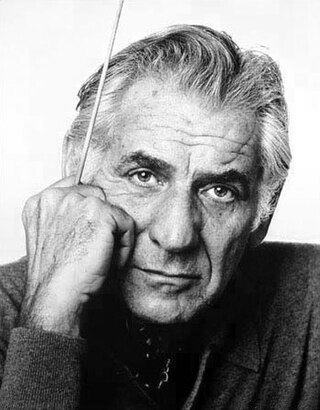Related Research Articles

The Boston Symphony Orchestra (BSO) is an American orchestra based in Boston. It is the second-oldest of the five major American symphony orchestras commonly referred to as the "Big Five". Founded by Henry Lee Higginson in 1881, the BSO performs most of its concerts at Boston's Symphony Hall and in the summer performs at Tanglewood.

The Bournemouth Symphony Orchestra (BSO) is an English orchestra, founded in 1893 and originally based in Bournemouth. With a remit to serve the South and South West of England, the BSO is administratively based in the adjacent town of Poole, since 1979. The orchestra is resident at Lighthouse in Poole, with other major concert series given at Portsmouth Guildhall, the Great Hall of Exeter University and Bristol Beacon. Shorter series are also given in Bournemouth and Basingstoke.

Seiji Ozawa was a Japanese conductor known internationally for his work as music director of the Toronto Symphony Orchestra, the San Francisco Symphony, and especially the Boston Symphony Orchestra (BSO), where he served from 1973 for 29 years. After conducting the Vienna New Year's Concert in 2002, he was director of the Vienna State Opera until 2010. In Japan, he founded the Saito Kinen Orchestra in 1984, their festival in 1992, and the Tokyo Opera Nomori in 2005.
John Harris Harbison is an American composer and academic.

Benjamin Zander is an English conductor, who is currently the musical director of the Boston Philharmonic Orchestra and the Boston Philharmonic Youth Orchestra.
The Bournemouth Sinfonietta was a chamber orchestra founded in 1968 as an offshoot of the Bournemouth Symphony Orchestra. It was disbanded in November 1999 after increasing difficulties in obtaining funding from local councils led to the decision to concentrate government funding on its larger parent.
James Sommerville is a Canadian orchestral hornist and conductor. He was the current principal hornist for the Boston Symphony Orchestra, and former Conductor and Music Director of the Hamilton Philharmonic, in Hamilton, Ontario.

Roger Louis Voisin was an American classical trumpeter. In 1959, The New York Times called him "one of the best-known trumpeters in this country."
Kenneth Amis is a Bermudian tuba player and composer best known for his association with the Empire Brass. He is also the assistant conductor of the MIT Wind Ensemble, a group he has been involved with since its creation in 1999. In addition, as of 2005, Amis is an Affiliated Artist of MIT.
Douglas Yeo is an American bass trombonist who played in the Boston Symphony Orchestra from 1985 to 2012, where he held the John Moors Cabot Bass Trombone Chair. He was also on the faculty of the New England Conservatory. In 2012 he retired from the BSO and accepted a position as professor of trombone at the Arizona State University School of Music, a position he held until 2016. From 2019 to 2023, he was trombone professor at Wheaton College (Illinois), and he was professor of trombone at University of Illinois Urbana-Champaign from 2022-2024.
Bernard Rands is a British-American contemporary classical composer. He studied music and English literature at the University of Wales, Bangor, and composition with Pierre Boulez and Bruno Maderna in Darmstadt, Germany, and with Luigi Dallapiccola and Luciano Berio in Milan, Italy. He held residencies at Princeton University, the University of Illinois, and the University of York before emigrating to the United States in 1975; he became a U.S. citizen in 1983. In 1984, Rands's Canti del Sole, premiered by Paul Sperry, Zubin Mehta, and the New York Philharmonic, won the Pulitzer Prize for Music. He has since taught at the University of California, San Diego, the Juilliard School, Yale University, and Boston University. From 1988 to 2005 he taught at Harvard University, where he is Walter Bigelow Rosen Professor of Music Emeritus.

Charles Schlueter, born in Du Quoin, Illinois, is the retired principal trumpeter of the Boston Symphony Orchestra. Schlueter studied with William Vacchiano at the Juilliard School. Prior to his 25 years as principal of the BSO, he also held positions with the Kansas City Symphony, Milwaukee Symphony Orchestra, Cleveland Orchestra, and the Minnesota Orchestra.

Alisa Weilerstein is an American classical cellist. She was named a 2011 MacArthur Fellow.
Doriot Anthony Dwyer was an American flutist. She was one of the first women to be awarded principal chair for a major U.S. orchestra. She was the principal flute for the Boston Symphony Orchestra from 1952 until 1990. She was second flute for the National Symphony Orchestra and the Los Angeles Philharmonic. She was an adjunct professor of Music at Boston University.
Alan Shulman was an American composer and cellist. He wrote a considerable amount of symphonic music, chamber music, and jazz music. Trumpeter Eddie Bailey said, "Alan had the greatest ear of any musician I ever came across. He had better than perfect pitch. I've simply never met anyone like him." Some of his more well known works include his 1940 Neo-Classical Theme and Variations for Viola and Piano and his A Laurentian Overture, which was premiered by the New York Philharmonic in 1952 under the baton of Guido Cantelli. Also of note is his 1948 Concerto for Cello and Orchestra which was also premiered by the New York Philharmonic with cellist Leonard Rose and conductor Dmitri Mitropoulos. Many of Shulman's works have been recorded, and the violinist Jascha Heifetz and jazz clarinetist Artie Shaw have been particular exponents of his work both in performance and on recordings.
Fenwick Smith was an American flutist. He studied under Joseph Mariano at the Eastman School of Music, graduating from there in 1972. Shortly thereafter he became a member of the New England Woodwind Quintet and began a thirteen-year membership with Boston Musica Viva. He became the assistant principal flutist of the Boston Symphony Orchestra in 1978, serving in that position until September 2006. During this time he was also principal flutist of the Boston Pops Orchestra. Smith was also a member of the Boston Chamber Music Society since 1984, and since 1983 gave annual recitals at Jordan Hall.

Dale Henderson is an American cellist. He plays a 1914 Thomas James Holder cello. Henderson is the founder and thought leader for the worldwide music movement Bach in the Subways, and has toured the world performing equal access concerts to renew interest in classical music.
The Cello Concerto No. 3, Legend of the Phoenix, is a composition for cello solo and orchestra by the American composer Augusta Read Thomas. The work was commissioned by the Boston Symphony Orchestra with contributions from Bill and Solange Brown. It was first performed in Boston on March 14, 2013, by the cellist Lynn Harrell and the Boston Symphony Orchestra under the conductor Christoph Eschenbach. Thomas subsequently adapted the piece into a viola concerto in 2013.

Divertimento, or Divertimento for Orchestra, is a suite of eight orchestral bagatelles by American composer Leonard Bernstein. Completed in 1980 and written to celebrate the centenary of the Boston Symphony Orchestra, it is well-known for featuring the notes B and C in most of its melodic material.
References
- ↑ Edgers, Geoff. "6 Minutes To Shine". Boston Globe. September 4, 2005.